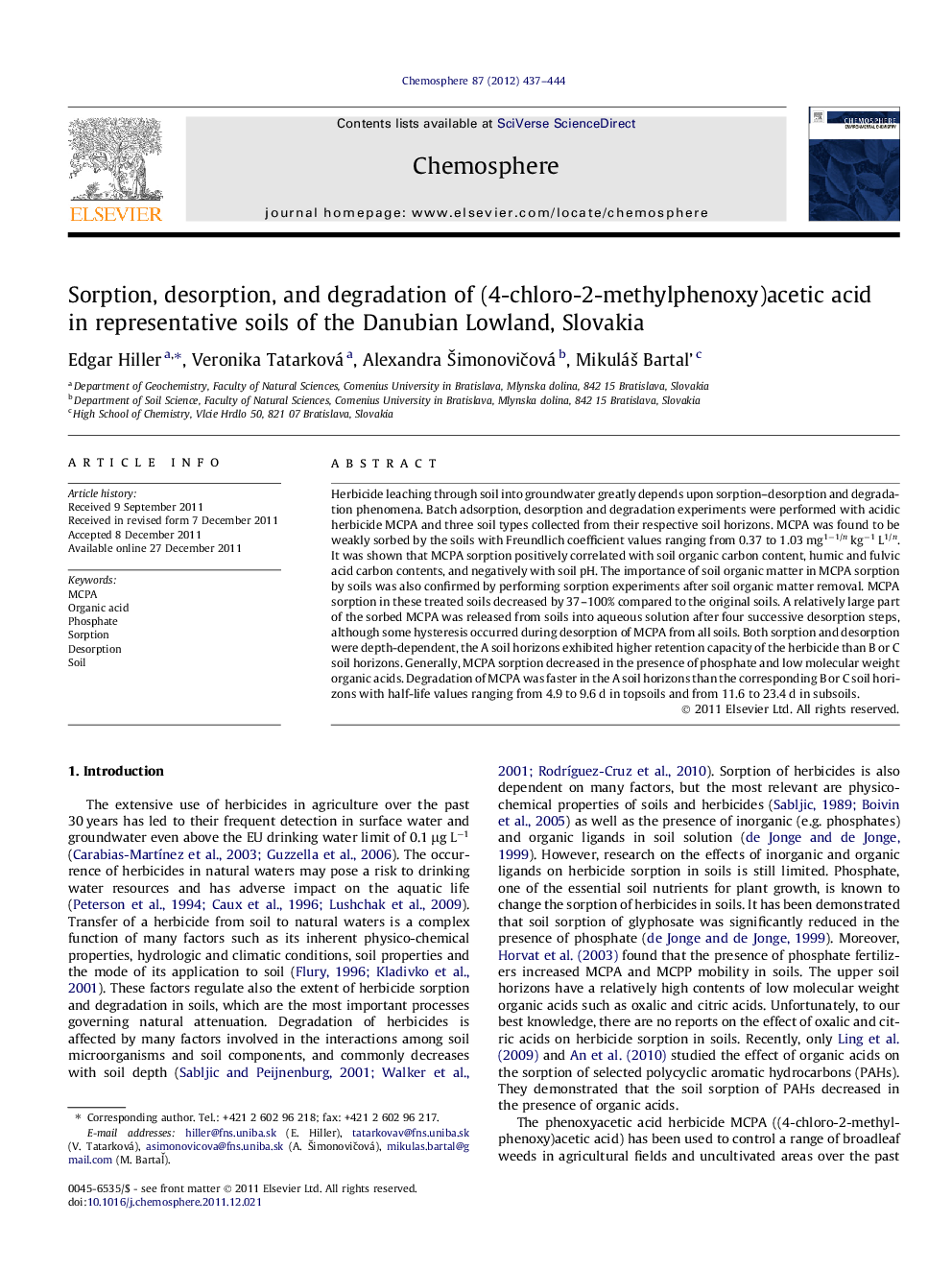| Article ID | Journal | Published Year | Pages | File Type |
|---|---|---|---|---|
| 4410211 | Chemosphere | 2012 | 8 Pages |
Herbicide leaching through soil into groundwater greatly depends upon sorption–desorption and degradation phenomena. Batch adsorption, desorption and degradation experiments were performed with acidic herbicide MCPA and three soil types collected from their respective soil horizons. MCPA was found to be weakly sorbed by the soils with Freundlich coefficient values ranging from 0.37 to 1.03 mg1−1/n kg−1 L1/n. It was shown that MCPA sorption positively correlated with soil organic carbon content, humic and fulvic acid carbon contents, and negatively with soil pH. The importance of soil organic matter in MCPA sorption by soils was also confirmed by performing sorption experiments after soil organic matter removal. MCPA sorption in these treated soils decreased by 37–100% compared to the original soils. A relatively large part of the sorbed MCPA was released from soils into aqueous solution after four successive desorption steps, although some hysteresis occurred during desorption of MCPA from all soils. Both sorption and desorption were depth-dependent, the A soil horizons exhibited higher retention capacity of the herbicide than B or C soil horizons. Generally, MCPA sorption decreased in the presence of phosphate and low molecular weight organic acids. Degradation of MCPA was faster in the A soil horizons than the corresponding B or C soil horizons with half-life values ranging from 4.9 to 9.6 d in topsoils and from 11.6 to 23.4 d in subsoils.
► Sorption, desorption and degradation of MCPA in soils were depth-dependent. ► Sorption of MCPA decreased in the presence of phosphate and organic acids. ► Soil organic carbon was the most important factor influencing soil retention of MCPA. ► Degradation of MCPA in topsoils was fast process.
